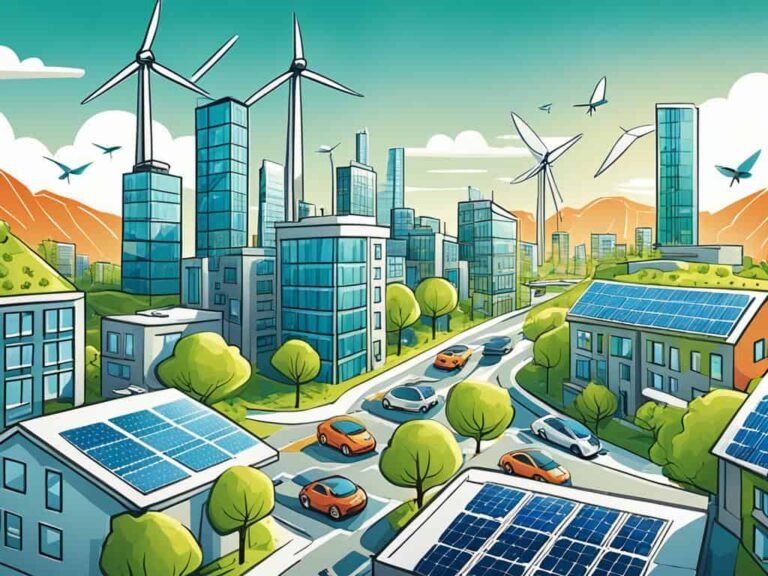The pressing concerns surrounding climate change and dwindling natural resources have propelled a global shift toward sustainable energy solutions. This term encompasses technologies and practices designed to meet energy demands without compromising the ability of future generations to do the same. These solutions are pivotal to addressing environmental challenges while maintaining economic growth and ensuring energy equity across communities.
Adopting renewable sources, energy-efficient devices, and innovative electrical instruments can significantly reduce dependence on fossil fuels. Employing these strategies minimises environmental impact and supports the development of a resilient energy infrastructure. By exploring what a sustainable energy solution entails and why it is vital, stakeholders can better appreciate their role in shaping a more sustainable future.
Defining Sustainable Energy Solutions
Sustainable energy solutions refer to methods and technologies that generate, distribute, or conserve energy in an environmentally responsible manner. These often involve the deployment of renewable energy sources such as solar, wind, and hydropower. Additionally, advancements in electrical equipment, including smart grids and energy-efficient appliances, are integral to these solutions. By incorporating such technologies, organisations can reduce greenhouse gas emissions and align with global sustainability goals.
The Need for Sustainable Energy Solutions
Here are some of the key reasons why sustainable energy solutions matter:
Mitigating Environmental Impact: Burning fossil fuels emits large quantities of CO2 and other harmful gases, which play a major role in driving climate change. Deploying renewable energy equipment, such as wind turbines and solar panels, helps reduce this environmental strain.
Ensuring Energy Security:
Fossil fuels are limited resources, and their availability fluctuates based on geopolitical factors. Sustainable energy solutions ensure a consistent and reliable supply, reducing dependence on volatile markets.
Enhancing Energy Efficiency:
Incorporating advanced electrical devices, such as smart meters and energy-efficient lighting, reduces overall energy consumption. This not only lowers costs but also promotes responsible energy use.
Driving Economic Growth:
Investments in sustainable energy technologies create jobs and stimulate economic development. Industries that deploy innovative solutions also benefit from increased operational efficiency and reduced overheads.
Examples of Sustainable Energy Solutions
To better understand their scope, consider the following examples:
Solar Energy Systems:
Photovoltaic panels convert sunlight into electrical energy, offering a sustainable and eco-friendly power solution.
Wind Turbines: These devices employ wind energy to generate power, often on a large scale.
Hydropower Plants:
Harnessing water flow to produce electricity, hydropower is a dependable and sustainable option.
Energy-Efficient Appliances:
Modern electrical instruments designed to use less energy while maintaining high performance contribute significantly to sustainability efforts.
Challenges in Adopting Sustainable Energy Solutions
While the benefits are undeniable, adopting these solutions requires addressing certain challenges:
High Initial Costs:
The deployment of renewable energy systems and advanced electrical equipment often involves significant upfront investments.
Technical Limitations:
Some renewable energy sources, like solar and wind, are intermittent and require reliable storage systems for consistent supply.
Infrastructure Requirements:
Incorporating sustainable energy solutions at scale demands substantial upgrades to existing infrastructure.
Empowering a Sustainable Future
Sustainable energy solutions are no longer a distant ideal but an urgent necessity. They represent a path to cleaner air, energy security, and economic resilience while safeguarding the planet for generations to come. By incorporating renewable sources, efficient electrical devices, and innovative energy practices, individuals and businesses can make meaningful strides toward sustainability.
Partnering with a reputable energy brand can make this transition seamless and impactful. With their expertise, advanced technologies, and reliable support, these brands provide the foundation needed to deploy effective and tailored energy solutions.
